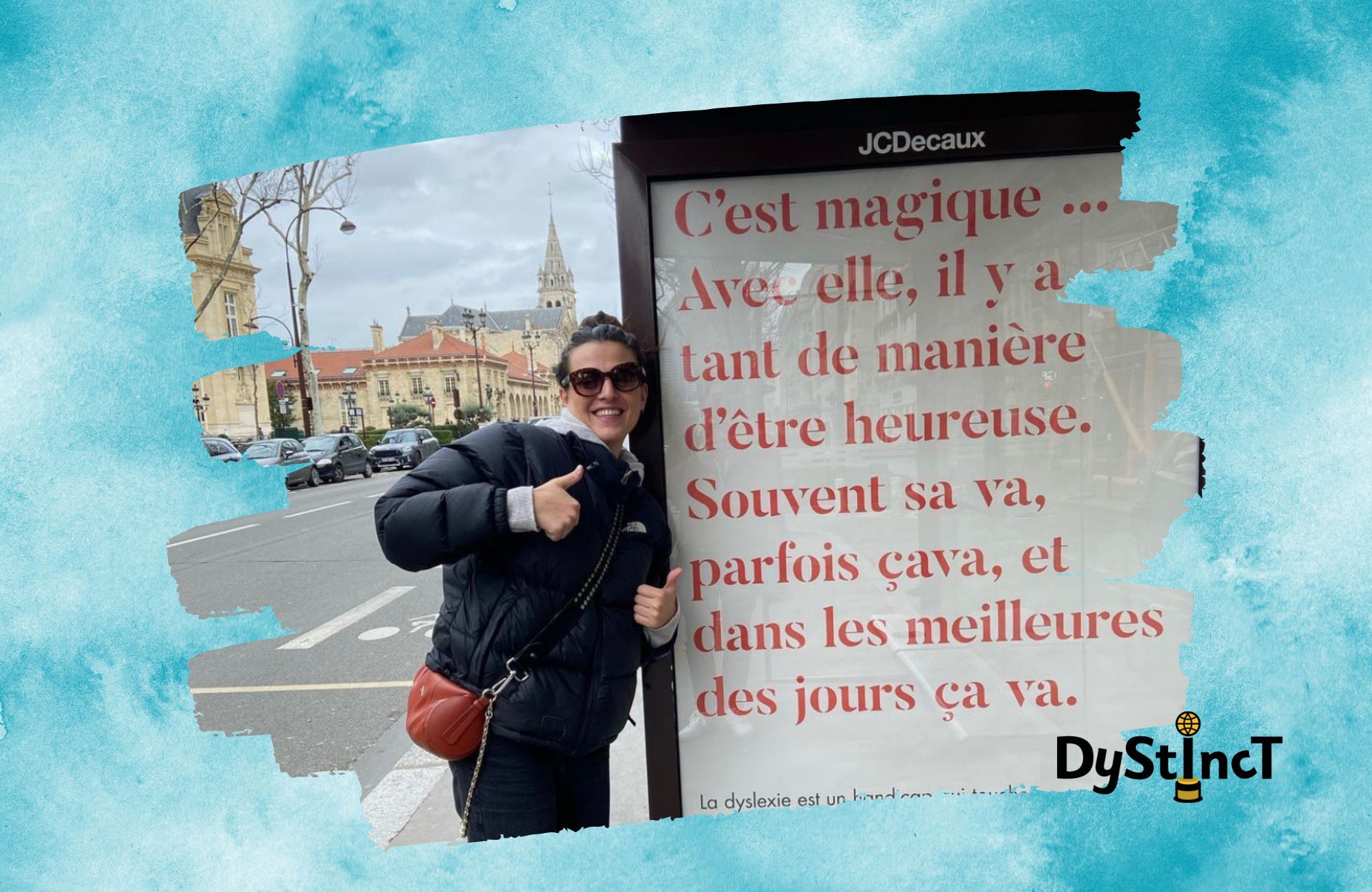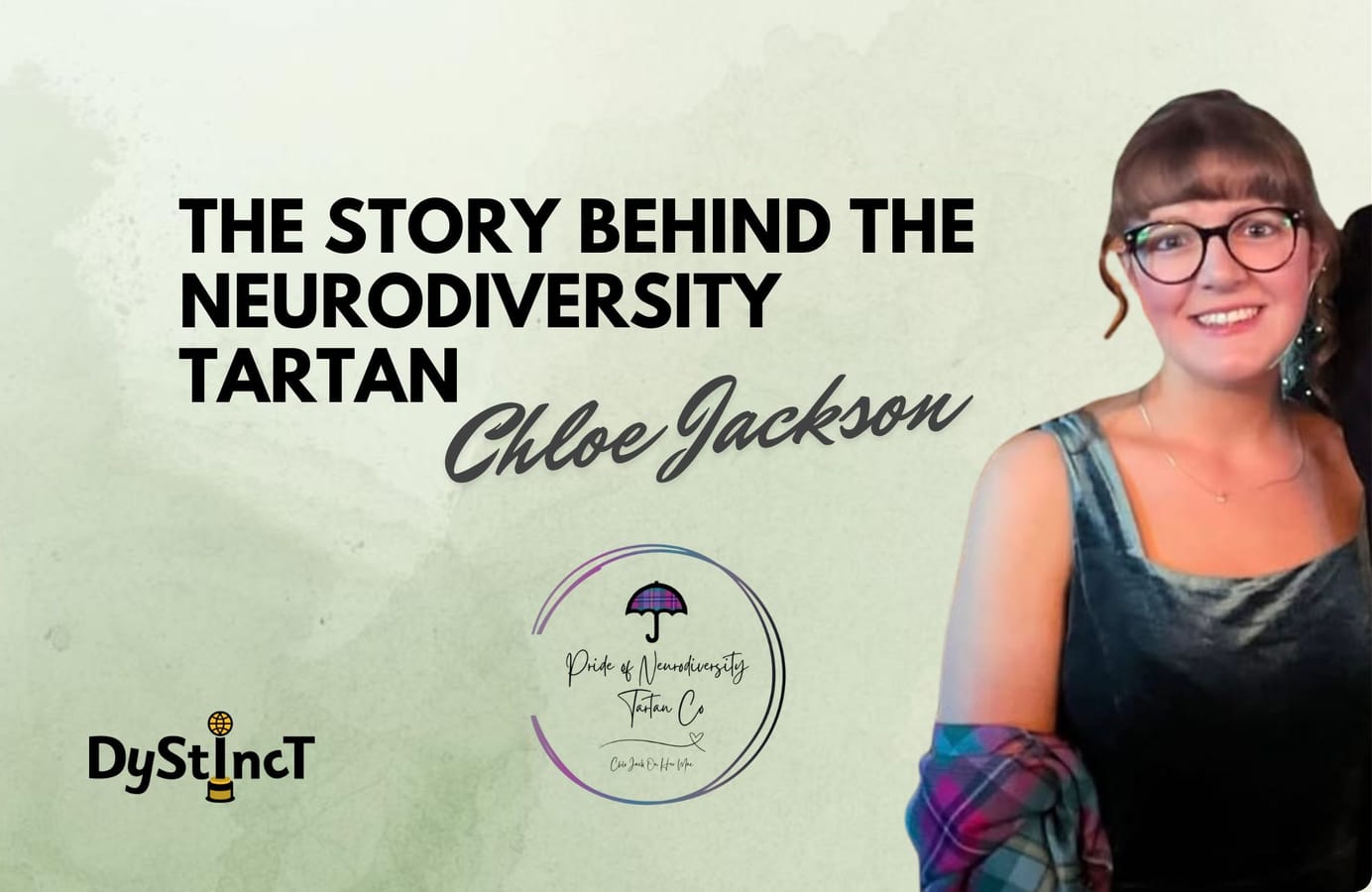
Issue 12: Dystinct Journey of Justine Vilgrain
The story of how Justine Vilgrain, a successful creative strategist from Paris, France, who had a turbulent childhood due to the lack of support from the school system in France, is now working to make people with learning difficulties feel accepted.

Justine Vilgrain was a turbulent child, constantly getting into trouble with her teachers and parents because of her dyslexia and undiagnosed ADHD. On her own admission, she got kicked out of two schools in Paris, France, before being shipped off to a boarding school in the UK at 14 years.

Justine believes that the French education system was not adapted to cater to dyslexic students and that her move to London was a blessing, although she didn't realise it back then. "As soon as reading and writing started at school, everything became problematic. My teacher realised I was dyslexic and told my parents. I got diagnosed immediately at six years, but the teachers still thought I was lazy. Because of my ADHD, sitting still in a chair was not my strong suit. I was noisy, had bad grades and a bad attitude, so I wasn't exactly the teacher's favourite student."
Justine recalls that once, a teacher threw her exam paper at her and said, "I'm not even going to read this. There are too many spelling mistakes. This is a zero." Another time, a teacher made her stand up in class and made everybody clap because Justine scored 0.5 on a writing test. "They always considered it laziness and not like 'Oh, she has a handicap; I need to do something different to help her. 'There is such a history to the French language that sort of makes everybody picky. If you make a mistake, it's almost like you are insulting the French language."
Justine shares that she had a dyslexic friend at school, and they would get back at the teacher in their own childlike manner. "My dyslexic friend and I were seated together at school in France. We always got zeros, and sometimes the teacher would mark our papers with negative scores, like minus 20 or minus 30. So, we decided, 'you know what? We are always going to get zeros, so why not make his life harder?' We would have a competition to see who scored worst, and we'd make mistakes on purpose."
By 14, Justine's attitude and foul mood were getting too difficult for her teachers and parents to manage. So, her parents decided to send her to a boarding school in the UK."I was happy to be sent away. My younger sister was reading big books and being praised for it. My home life got difficult. I was angry and acting out. My mum was frustrated with my grades, and my dad was mad at me because I was being rude to my teachers.
I was angry and acting out.
School seemed more supportive of her learning differences in the UK. She had accommodations put in place in the classroom and curriculum rather than having to work with a therapist after school like she had to do in France. She found the teachers more accommodating of her differences as well. However, Justine found the teachers in the UK stricter compared to the teachers back home, so it took some time for her to adjust to her new life. So, she had to move schools twice before she found her footing at the third boarding school.
"My third boarding school, Millfield, specialised in sports and was dyslexia aware. I got to do a lot of sports which helped with my hyperactivity. I had a lot of support academically as well. I was in the A-level, and I took photography, video, media, business and French for English students. I was allocated a scribe and a room for myself, so it wasn't noisy and given extra time in exams. I had great grades in media and photography, with lots of As. I began performing well. I began to understand the positivity of being dyslexic and decided to not worry about others and just keep going as who I am," shares Justine.

Justine moved to the USA after finishing school to pursue a degree in Integrated Design. She did exceedingly well and was even honoured by the university for her grades. She believes that studying subjects that she was interested in and genuinely wanted to learn made all the difference in her performance. The vibe in the USA was welcoming, and it almost felt like they celebrated people with different thinking shares Justine. "In my student statement, I mentioned that I was dyslexic, and they literally looked at me like I was a genius. In France, they saw me like I was stupid. In the UK, they said, 'Ok, you have an issue, we will help you out and then in the USA, they were like, 'Wow! You are going to kill the world.' That is when I realised that there definitely was an issue with the system in France."
This post is for paying subscribers only
SubscribeAlready have an account? Log in


